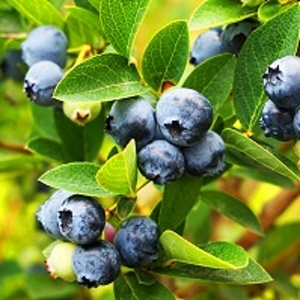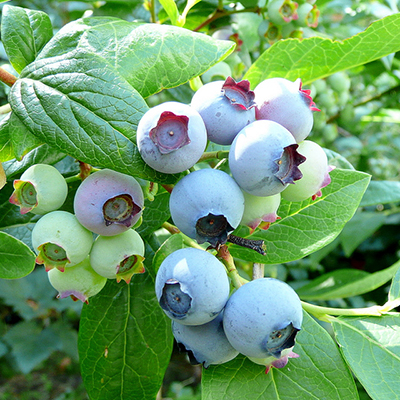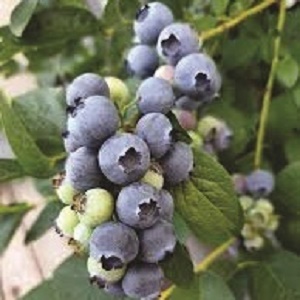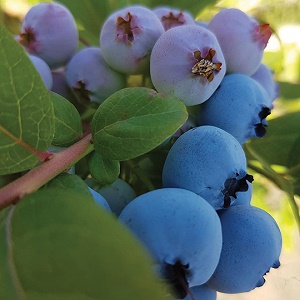High Bush Blueberry : NORTHLAND 1 year old plant, 1 litre pot
$21.95
(Vaccinium corybosum
We consider Northland to be the all round best choice for colder regions. It is extremely productive, with yields at least double that of the half-high varieties such as Chippewa and proven winter hardiness down to -35°C. In addition, the branches are limber enough not to break under heavy snow loads. Small to medium size, dark blue berries are sweet, with enough tangy wild berry taste to make them very flavourful. Vigorous, spreading bush usually tops out at 100-120cm (3½-4').
SELF FERTILE | ZONE 3/4 | HARVEST: EARLY-MID JULY
Growing Tips
Everyone would love to grow blue berries. You do need to be aware though that blueberries will be more judgmental of your soil than most plants. In some areas of the country (PEI for instance) the soil is naturally acidic, meaning it has a pH of 4.0-5.5. This is exactly what blueberries like. Here in southern Ontario our soil pH is more like 7.0-7.8. In these alkaline type soils some plants such as lingonberries and blueberries find it hard to access the nutrients that are in the soil. Amending the planting site with peat moss and/or using our Blueberry Booster product is recommended.
Every Whiffletree plant order includes a copy of our 'Planting For Success' guide. Check out the Blueberry section for suggestions.

10 reviews for High Bush Blueberry : NORTHLAND 1 year old plant, 1 litre pot
Only logged in customers who have purchased this product may leave a review.




Pam P. (verified owner) –
Anonymous (verified owner) –
Elaine (verified owner) –
Have taken very well. Very pleased with plants getting established well after received and shipped this year, and last year!
John and Celia Finley (verified owner) –
Pascale (verified owner) –
Paul Saleh (verified owner) –
Marcia Beeftink (verified owner) –
Mark Geltink (verified owner) –
Jeff Marshall (verified owner) –
bob waldhuber (verified owner) –